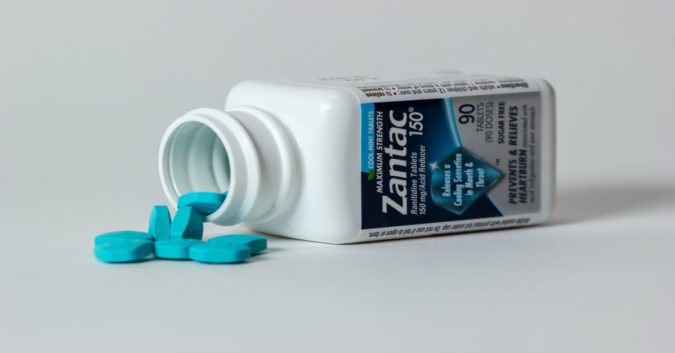Last year, when the Food and Drug Administration (FDA) announced that it had become aware of toxic impurities in a popular heartburn medication, it triggered a string of recalls that has continued into 2020. On January 8, the FDA alerted consumers about 2 more voluntary recalls of ranitidine medications because of N-Nitrosodimethylamine (NDMA).
Sold under the brand name Zantac, the ranitidine medications have been used daily by millions of Americans for decades. According to the World Health Organization (WHO), NDMA is probably carcinogenic, and certainly not something people should ingest regularly.
Although the investigation into the contamination is ongoing, there is growing evidence that the drug is “inherently unstable,” meaning ranitidine may form NDMA on its own during shipping, storage, or digestion. This is distinct from contamination that occurs because of a manufacturing oversight or shoddy production.
On the same day as the latest ranitidine recalls, the FDA released a statement about Mylan’s voluntary recall of prescription nizatidine capsules. Nizatidine (Axid), which is used to treat and prevent ulcers and acid reflux, is chemically similar to ranitidine. In December, the agency asked manufacturers to expand their testing for both types of medications.
What Consumers Should Know About the Zantac Recalls
Not all ranitidine medications have been recalled from the U.S. market. The recalls so far have all been voluntary, though the FDA has advised companies to recall their ranitidine if testing detects levels of NDMA above the acceptable daily intake (96 nanograms per day).
Several manufacturers have pulled their product because they have detected NDMA above the acceptable level, and others have issued recalls based on the potential risk of NDMA contamination.
Concerning the risks posed by NDMA in ranitidine, the FDA said that it “does not have scientific evidence to recommend whether individuals should continue or stop taking ranitidine medicines at this time.” Even so, the agency said:
“If you are taking one of the recalled medicines, you should follow the recall instructions provided by the company. This information is on FDA’s website.”
Zantac and ranitidine generics were sold over the counter, and it is likely that people still have drugs with NDMA contamination in their medicine cabinet. While NDMA is dangerous in large doses, the agency has stressed that the levels of NDMA it has detected in ranitidine drugs are low.
Consumers who took over-the-counter ranitidine medications likely have alternative over-the-counter options approved to treat their condition.
For patients taking prescription ranitidine who wish to stop, the FDA says they should talk with their healthcare professional because there are multiple drugs approved for similar uses.
Additionally, the agency has confirmed that no NDMA has been found in the following ranitidine alternatives:
- Pepcid (famotidine)
- Tagamet (cimetidine)
- Nexium (esomeprazole)
- Prevacid (lansoprazole)
- Prilosec (omeprazole)
Since the contamination was discovered, the FDA has been testing ranitidine and nizatidine medications. “We will continue to investigate and work to ensure these types of impurities do not exceed acceptable limits,” the agency said, “so that patients can continue taking their medicines without concern.”
DeLauro Reintroduces the Recall Unsafe Drugs Act
Nitrosamine impurities, including NDMA, have also been discovered in several leading heart medications. Investigations revealed that unsafe manufacturing processes lead to the contamination of batches of Valsartan, Losartan, and Irbesartan. That news prompted one of the largest prescription drug recalls in recent memory.
Taken together, the 2 massive recalls have reignited a conversation about the limited role the FDA plays in drug regulation. On January 10, U.S. Rep. Rosa DeLauro (D-CT) has reintroduced the Recall Unsafe Drugs Act (H.R. 5578), a bill that would give the agency more power to take risky drugs off the market.
“Currently, the FDA has mandatory recall authority over other products that the agency regulates, such as medical devices, food, and biological products,” DeLauro said in a statement introducing the legislation:
“Unfortunately, when something goes wrong with drugs, the FDA has to rely on the good faith of drug manufacturers to recall their products.”
In other words, if there were contaminated lettuce on the market, the FDA can recall it immediately. When it’s a potentially dangerous drug, however, the FDA has few tools at its disposal to prevent it from reaching American consumers. DeLauro recognized that most companies agree to voluntarily recall products after an FDA warning. “However,” she said:
“There are times when manufacturers refuse to recall their products, even in the face of overwhelming evidence suggesting that they are causing illness or even death to consumers.”
The sad truth is that some companies are willing to overlook or downplay the risks of the products they sell. When that happens, people get hurt.
For more than 40 years, Sokolove Law has been helping people move forward after they have been harmed by dangerous drugs. If you are worried, talk to us today.
